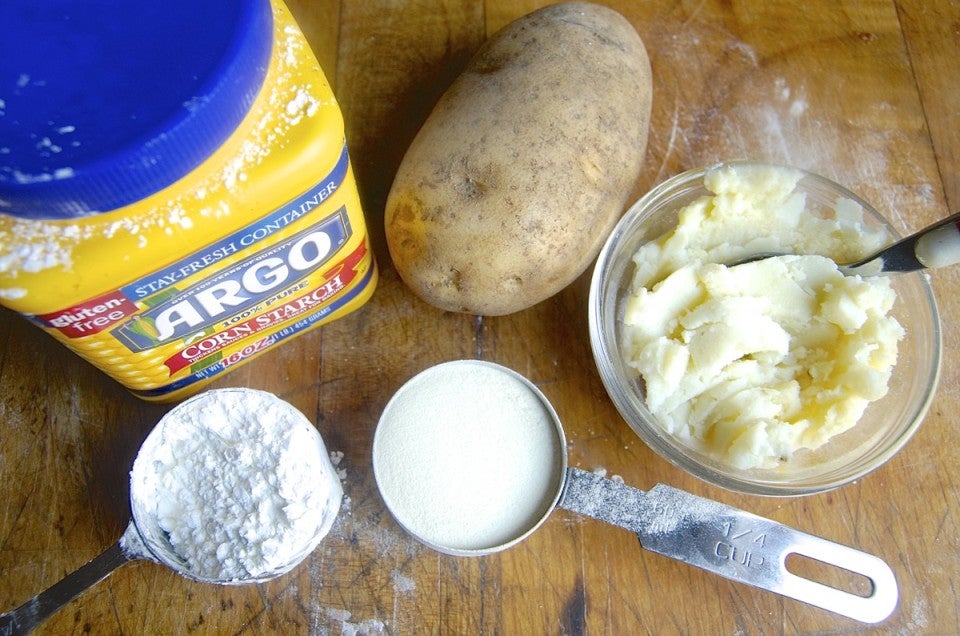


Your favorite sandwich bread recipe calls for potato flour. You open the cupboard, and GRRRRR: you used it up on those yeast rolls and forgot to restock. What now? Don’t give up on that bread! We’ve got several other ingredients you can substitute for potato flour while you work on restocking your supply.
First, let’s clear up any confusion about potato flour and potato starch. Potato flour is made from whole peeled potatoes, cooked, dried, and ground into a fine, beige-colored powder. Potato starch is “washed” out of crushed potatoes, then dried to a fine, bright-white powder.
What’s the difference? Potato flour includes fiber, protein, and flavor, while potato starch is pure flavorless starch.
Starch helps keep bread and rolls soft, moist, and fresh by absorbing and holding liquid. When bread goes stale it’s because its liquid is evaporating; starch slows this process.
So while you wouldn’t want to use starch in a crusty baguette, it’s perfect for soft dinner rolls and sandwich loaves. Many King Arthur Flour yeast bread recipes call for potato flour, which adds not just starch, but a bit of creamy color and a faint hint of earthy, “potato-y” flavor.
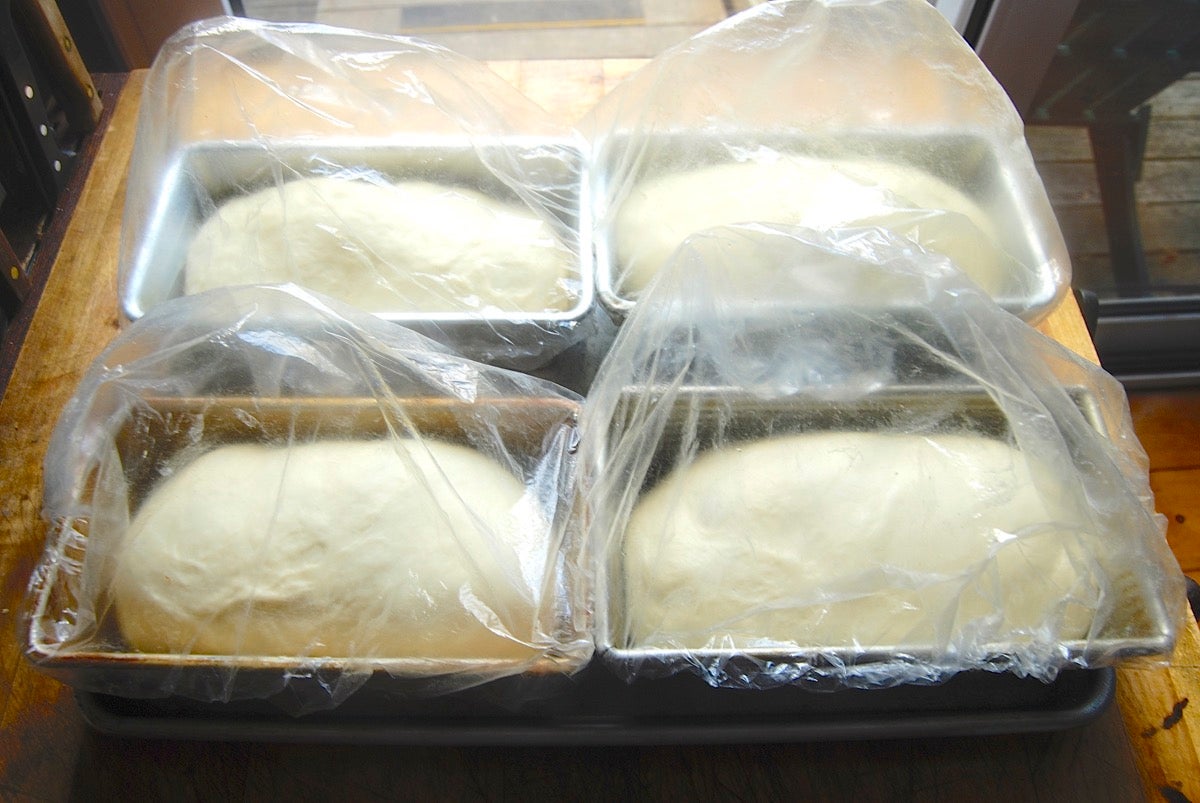
But back to the problem at hand: you’re out of potato flour, and you really, really want to make your favorite sandwich bread. Oh, and you also don't have any instant potato flakes, which function very similarly to potato flour in yeast bread, and can be used interchangeably (measured by weight).
Let's do some tests using commonly available substitutes. I'll make four loaves of White Sandwich Bread: one with potato flour as written; one that substitutes cornstarch for the potato flour; one that substitutes cooked, mashed potatoes, and one that substitutes all-purpose flour.
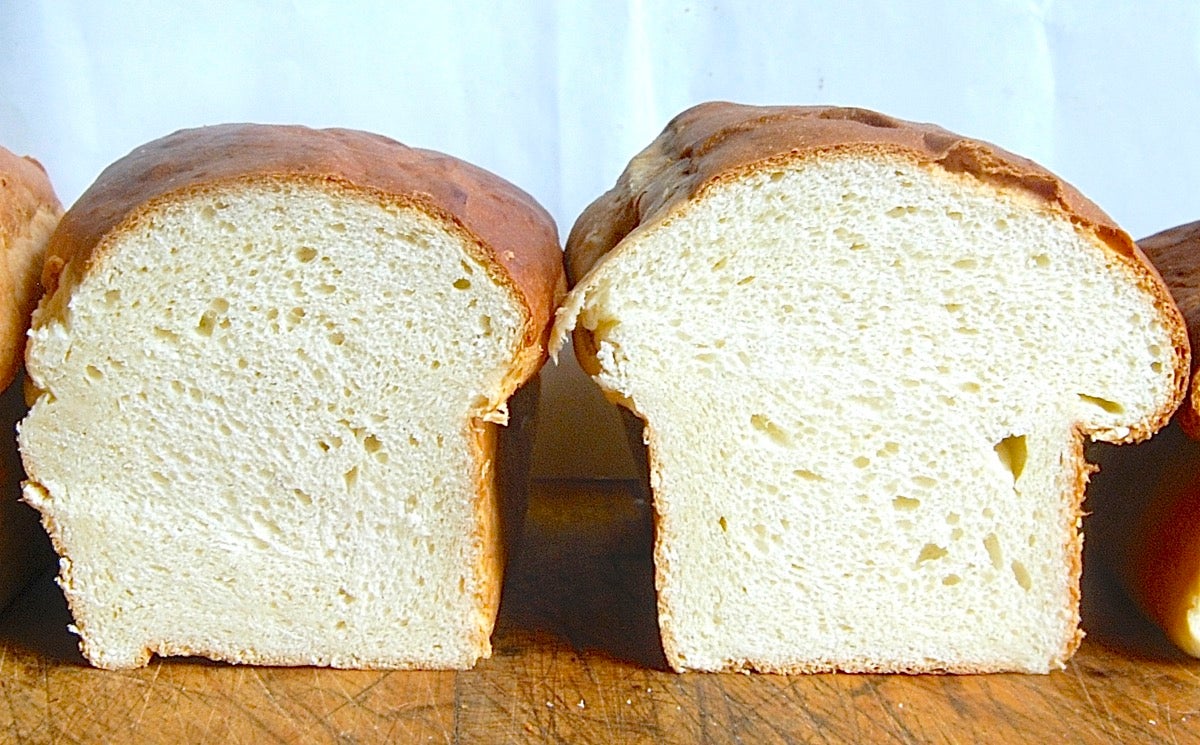
Cornstarch is a worthy substitute for potato flour if you’re in a pinch. However, while it keeps bread and rolls moist, that’s the end of it. Cornstarch lacks the subtle flavor and color present in potato flour, and thus bread made with cornstarch tastes a bit flat and is slightly paler in color than bread made with potato flour.
Can I substitute cornstarch for potato flour? Yes, with reservations; your bread will be paler and less flavorful.
How to do it: Substitute cornstarch 1:1, by volume, for potato flour in yeast recipes.
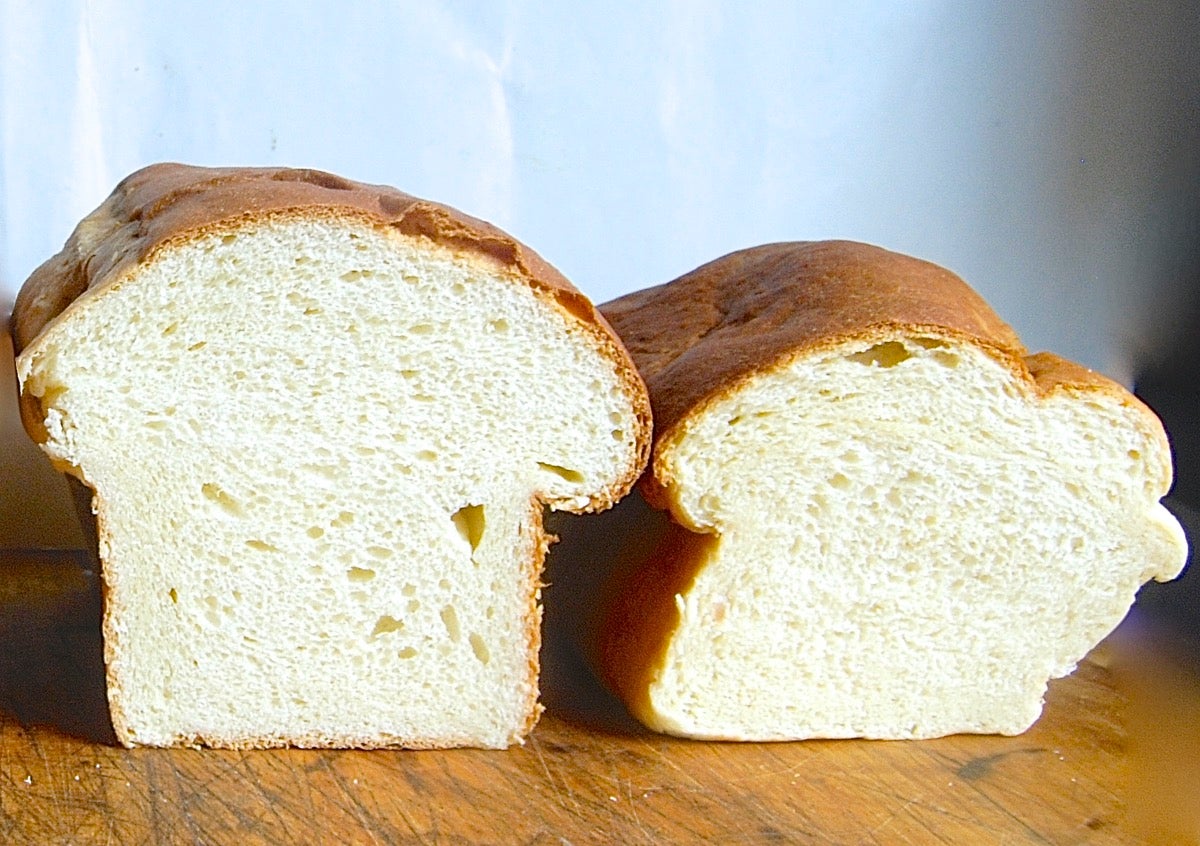
Mashed potatoes add wonderful flavor and over-the-top moistness to yeast bread and rolls; witness one of my favorite soft roll recipes, Amish Dinner Rolls.
But the proper balance of liquid and flour is key to bread’s structure, and mashed potatoes are a wild card. If you bake the potatoes, how dry did they become? If you boil them, how much water did they absorb?
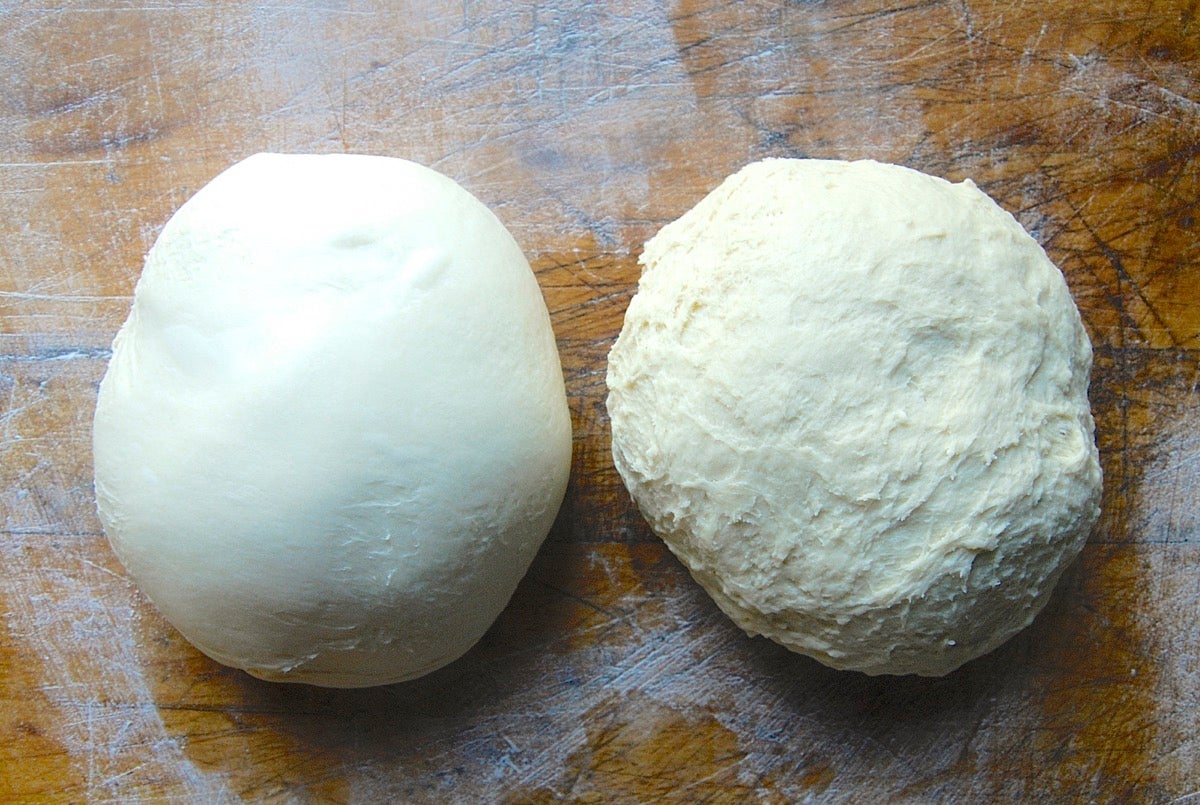
Substituting mashed potatoes for potato flour is possible, but dicey. See how rough the mashed potato dough is compared to the dough made with potato flour?
The mashed potato dough is sticky to work with. And though the resulting loaf's internal temperature is the requisite 190°F when I remove it from the oven, it collapses as it cools. Better luck next time, I guess.
Can I substitute mashed potatoes for potato flour? Yes, with caution; your bread may collapse.
How to do it: Substitute 3/4 cup unseasoned mashed potatoes for every 1/4 cup potato flour called for in your recipe. Reduce any added liquid in the recipe by 50%, subsequently adding more flour or liquid if necessary to make a soft but not overly sticky dough. Bake the loaf thoroughly, to an internal temperature of at least 200°F.
Even after all this, a loaf made with mashed potatoes may collapse. I suggest using this substitution in rolls, rather than bread; a small roll's structure is inherently more stable than that of a high-rising loaf.
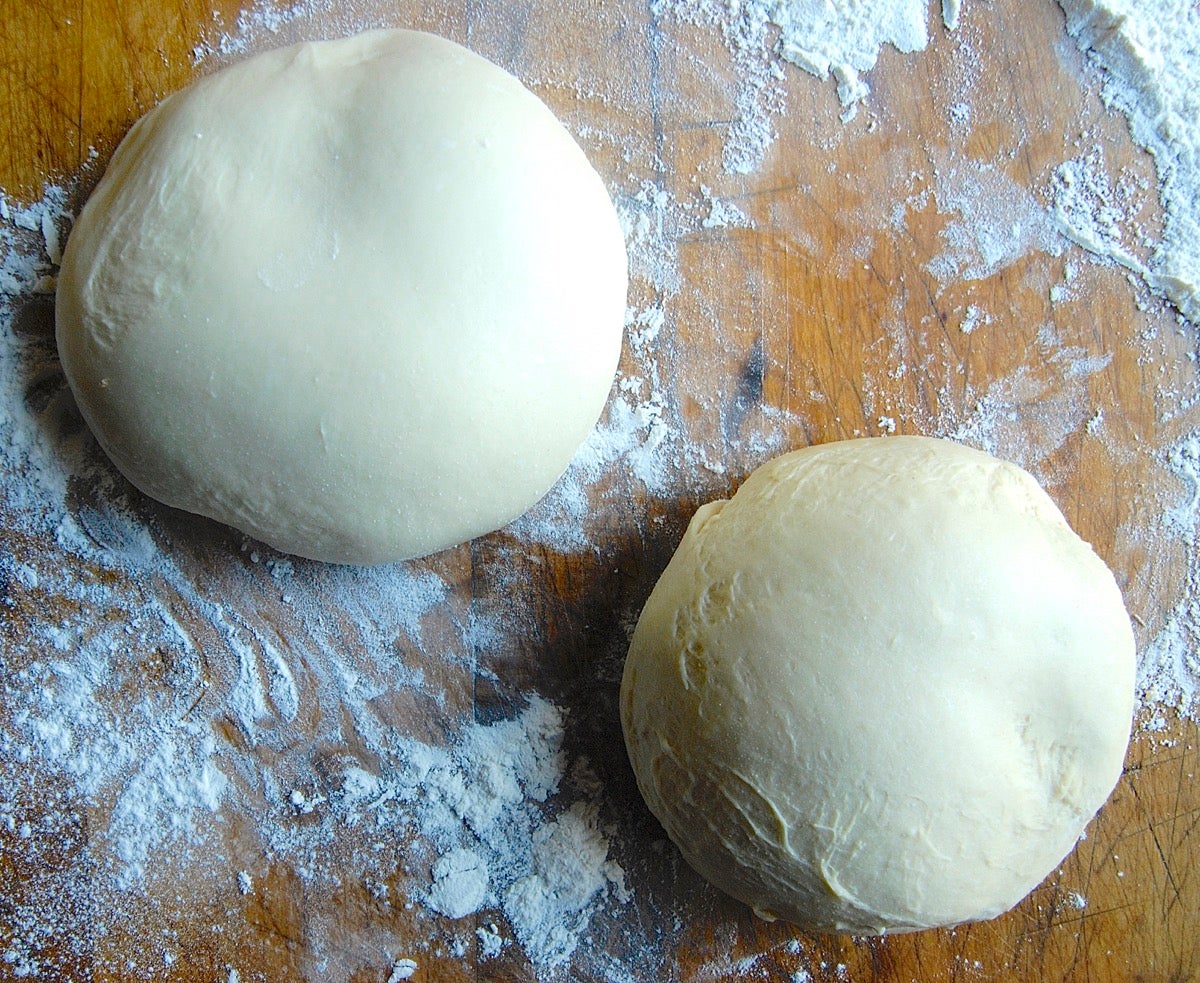
If you choose to forego the benefits of starch entirely, you can simply substitute all-purpose flour for the potato flour in your recipe.
You’ll need to make some adjustments; potato flour absorbs more liquid than all-purpose flour. If your recipe calls for a range of water, start at the lower end. If the dough is still too sticky to handle easily, sprinkle in a bit more all-purpose flour.
Can I substitute all-purpose flour for potato flour? Yes, with regret; your bread will lack moistness, keeping quality, and a bit of added flavor and color.
How to do it: Substitute all-purpose flour 1:1, by volume, for potato flour in yeast recipes. The dough may be a bit stickier and harder to handle at first, but thorough kneading should create a smooth ball of dough. The resulting loaf will rise and bake well, but in comparison to a loaf made with potato flour will lack a bit of flavor and color. Its texture will be drier, and it'll become stale more quickly.
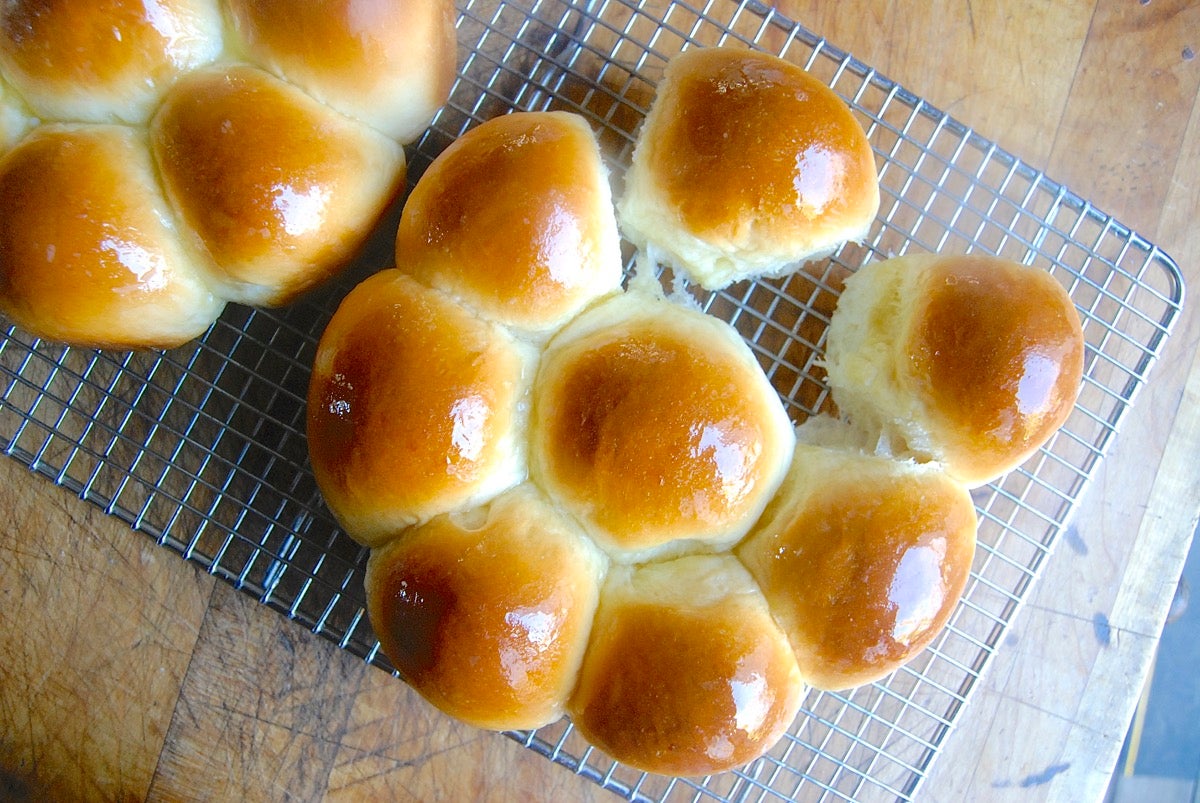
So, at the end of the day, here's my advice: If you don't have potato flour, purchase some and make it a pantry staple. These tips are handy if you unexpectedly run out, but nothing beats the attributes (and ease of use) of potato flour.
"They're not interchangeable when baking gluten-free; but they're roughly interchangeable when being used to retain moisture in yeast breads. To be ultra-precise about it, potato flour is about 83% starch, so you'd perhaps want to substitute a little less potato starch; but realistically this kind of small adjustment is unlikely to make much of a difference." As with cornstarch, potato starch doesn't have the flavor or warm color offered by potato flour.

And if you don't want to worry about finding the right substitution, be sure to stock up on some potato flour so you'll never be caught unaware.


July 28, 2021 at 3:13am
Hi, problem is I cannot get potato flour anywhere; only potato starch! Any ideas?
July 28, 2021 at 5:09pm
In reply to Hi, problem is I cannot get… by Sue (not verified)
Hi Sue, Potato Starch is a worthy substitute for potato flour if you’re in a pinch. However, while it keeps bread and rolls moist it will not add the flavor that potato flour contributes. We have Potato Flour available for purchase on our website here: https://shop.kingarthurbaking.com/items/potato-flour-16-oz. Happy Baking!
October 24, 2021 at 11:05am
In reply to Hi, problem is I cannot get… by Sue (not verified)
Sue, google potato flour. I've seen it for sale online
July 3, 2024 at 10:52am
In reply to Hi, problem is I cannot get… by Sue (not verified)
Bob’s Red Mill potato flour, super fine gluten free…non GMO an AMAZON.COM
January 26, 2021 at 2:33pm
Thank you for your potato flour comments. It was interesting to read about why potato flour is used. We’ll put that on our King Arthur shopping list.
December 31, 2020 at 3:22pm
My question is the reverse of this - I'm trying to figure out how to substitute potato flour for fresh potato. Specifically for making gnocchi... I'm not seeing any gnocchi recipes calling for potato flour or potato meal but it seems like it would be a pretty good idea, with the ability for consistent results of potato flour + liquid vs the variability of mashed/baked potatoes typically called for. Any tips on what the ratio of potato flour + water should be in order replicate cooked (or raw) potato by weight or cup?
January 9, 2021 at 1:38pm
In reply to My question is the reverse… by SK (not verified)
Hi there, SK! That's not something we've experimented with before but you're welcome to give it a go! We'd suggest starting out by reversing the tips given for using mashed potatoes in place of potato flour. You'll want to use 1/4 cup of potato flour per 3/4 cup of mashed potato called for and increase the liquid by 50%. Best of luck and happy experimenting!
December 26, 2020 at 12:34pm
I have a recipe that calls for dry potato flakes. Can I substitute potato flour, and if so, how much?
January 5, 2021 at 1:52pm
In reply to I have a recipe that calls… by Lisle (not verified)
Hi Lisle! When using potato flour in place of potato flakes you'll want to use an equal amount by weight or half the amount of flour by volume when subsutituting for flakes. We hope this helps and happy baking!
November 30, 2020 at 11:36pm
my recipe calls for 18# of bread flour how muck potatoe flour should i use for a good flavor and freshness These are for yeast raised donuts.thanks
Pagination